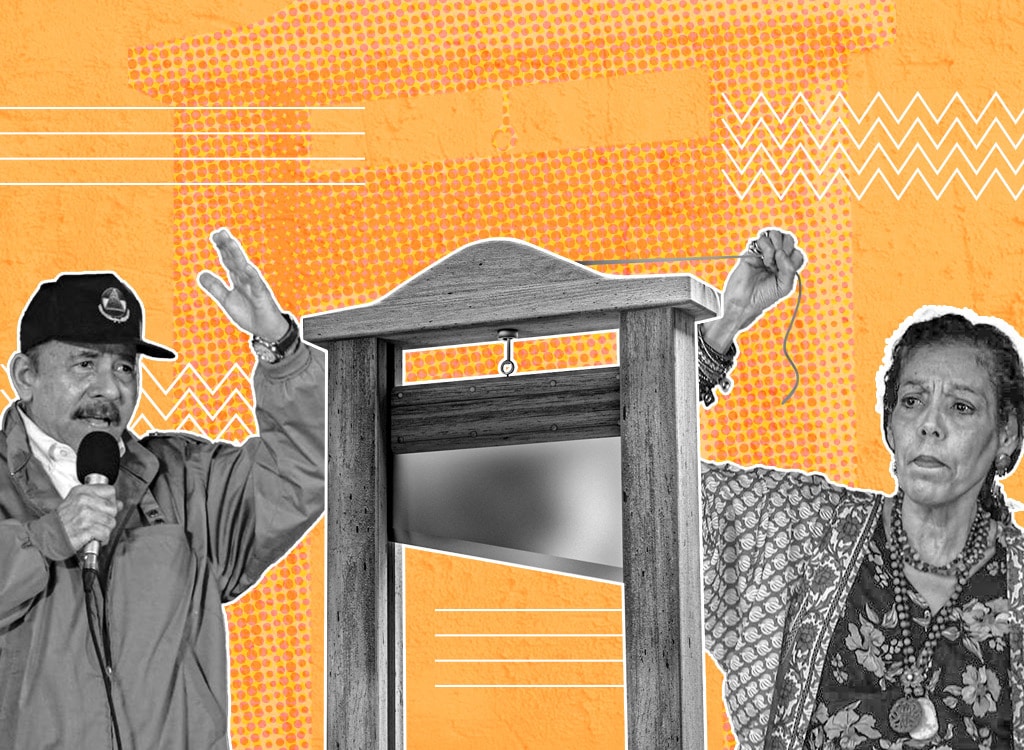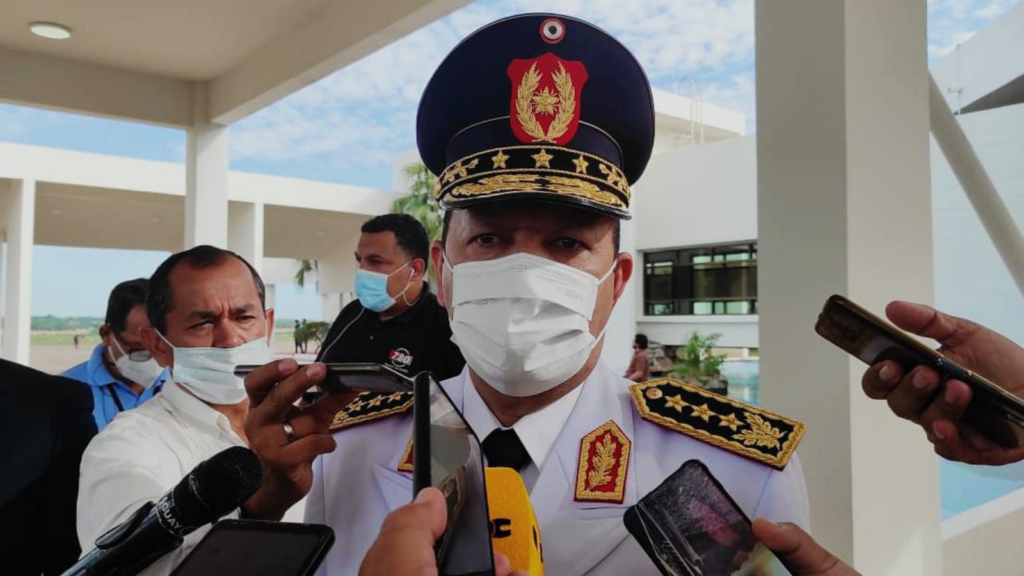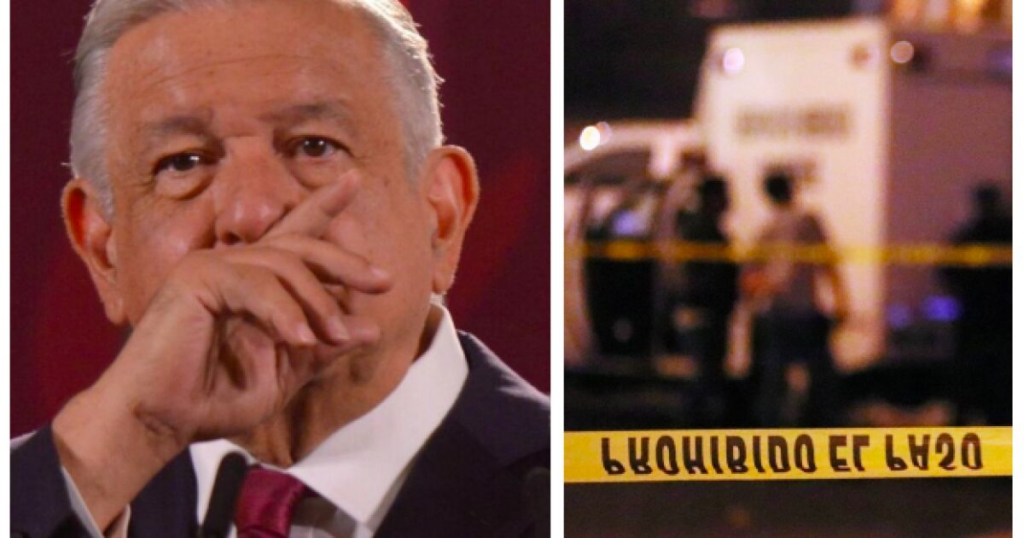A total of 669 associations, foundations and civil society organizations, national and international, which for decades have been developing benefit projects for the most vulnerable and poorest populations in Nicaragua, have been beheaded in the last three and a half years – between the end of 2018 and mid-2022– by the regime of Daniel Ortega and Rosario Murillo, which has ordered the cancellation of their legal status or operating records, according to a count and analysis of data from CONFIDENTIAL.
The cancellation of these non-governmental organizations began on November 29, 2018, and continued in 2021. However, in 2022 the regime began an unprecedented mass elimination, wiping out 595 NGOs in five and a half months.
CONFIDENTIAL built a database from the legislative decrees and resolutions of the Ministry of the Interior (Migob), published in the official newspaper La Gaceta and tracked its social work, origin and years of operation in Nicaragua. The analysis reveals that 90% of these NGOs had been operating in the country for more than a decade and developed social, education, health, human rights, and cultural projects, among others. In addition, more than a dozen of these organizations had more than 50 years of experience.
The dissolution of these organizations occurred in a repressive context after the massacre against the citizen protests of the April 2018 Rebellion and worsened in 2021, when the regime annulled the political and electoral competition to ensure Ortega’s fourth consecutive term, who points to the NGOs to finance and participate in the alleged “failed coup attempt” against their government.
50% of NGOs in social and development projects
The analysis of CONFIDENTIAL reveals that 36.1% of the canceled organizations executed development projects at the national level. A part of these NGOs were focused on women’s rights, social, economic, environmental development or religious origin, among others.
Among its beneficiaries were indigenous peoples, women victims of gender violence, youth, children in risk conditions and also banana farmers, horticulturists and small businessmen. Some of these organizations are: Oxfam Intermón of Spain and Denmark, the Alexander Von Humboldt Center for the Promotion of Territory Development and Environmental Management, the Indian Asla Takanka Indigenous Cultural Center and the Coordinator of Rural Women.
Another 17.12% of the organizations had social approaches that brought together artists: musicians, pianists, theater actors, poets; professionals from different areas: economists, educators; also associations of war victims, workers who are victims of toxic products, people who fight against addictions, among others. Thus, each of these Nicaraguans, who enjoyed or had organized to seek an improvement to some problem or need in common, were violated of their constitutional right to associate.
Among these organizations are the INCAE Graduates Association, the PEN International-Nicaragua Association, the Granada International Poetry Festival Foundation, the Quetzalcóatl Theater Association, the Nicaraguan Restaurant Owners Association, and the Nicaraguan Association of Patients Contaminated with Toxic Products. .
Likewise, there is a 16.3% that developed education and human rights projects with more than two decades of work in Nicaragua. These mostly benefited women survivors of violence, peasants, indigenous populations and victims of state violence that has worsened since April 2018.
Some are the Nicaraguan Center for Human Rights (Cenidh), the Permanent Commission for Human Rights of Nicaragua (CPDH), the Collective Association of Women of Matagalpa, the Egdolina Thomas Foundation for the Defense of the Rights of the Inhabitants of the Caribbean Coast of Nicaragua, the Nicaraguan Coordinating Federation of Non-Governmental Organizations that work with children and adolescents, the Fray Antonino Vaccaro Center for the Training of Rural Women, the Pan y Amor Association, among others.
The remaining 20% of NGOs group medical associations, which spoke out against the official mishandling of the covid-19 pandemic, such as the Nicaraguan Medical Association. Also, there are organizations in favor of transparency and democracy, the environment, cultural, humanitarian aid and national and international universities such as the Catholic University of the Dry Tropics (Ucatse), administered by the Diocese of Estelí, or the Polytechnic University of Nicaragua ( Upoli), bastion of university protests in 2018.
The oldest NGOs
Of the 669 canceled organizations, there is 81% that had between 11 and 30 years of working in the country. 10% were between one and 10 years old; 6% between 31 and 40 years old, and 2% more than five decades of social work.
Among the oldest are the Nicaraguan Academy of Language (92 years) and the “Casino de Rivas” Social Club (126 years). Likewise, there are a dozen that were over 51 years old, such as the Nicaraguan Economists Association (59), the Matagalpa Social Club (66) or the Juigalpa Social Club (73).

Also, there is a group of organizations that were between 31 and 50 years old, such as the National League against Leukemia and Cancer in Children “Julio Cortázar” (31), the Father Fabretto Family (32), the Nicaraguan Association of Psychologists (40), the Nicaraguan Association of Nutritionists and Dieticians (39), the Nejapa Country Club Association (49), among others.
Other organizations, such as the Hogar de Esperanza Association, the Institute for Strategic Studies and Public Policies (IEEPP), Cáritas Diocesanas de Estelí, the Association for the Comprehensive Care of Human Rights, the Association of Peasant Protectors of Bosawás, and 168 others had between 11 and 20 years of working in Nicaragua. Meanwhile, institutions such as Popol Na, the Nicaraguan Chamber of the Small and Medium Tourism Industry, the Foundation for the Promotion and Development of Women and Children Blanca Aráuz and others were between 21 and 30 years old.

Likewise, there are 66 non-governmental organizations that were less than a decade old, such as: the Segovias Leadership Institute Foundation (8), the Indian Asla Takanka Cultural Center (8), the Tenoli Foundation (10) and the Alternative Center for Surviving Women. of Violence Izei (9).
53 foreign organizations
The Ortega guillotine has also eliminated 53 operating records of non-governmental organizations of foreign origin. Among these there are 27 of American origin, seven from Spain, four from Italy, three from Germany, two from the United Kingdom and others from Panama, Costa Rica, Mexico, England, Holland, Ireland, Switzerland, Sweden and Denmark.
According to a source linked to international NGOs, he revealed to CONFIDENTIAL that in October 2020 an evaluation was carried out on the impact of the cooperation channeled by these organizations and it was estimated that 27 of these “international NGOs channeled 25.5 million dollars a year in cooperation with Nicaragua that directly reached 550,000 people, especially from rural areas”.

66% of these foreign organizations were focused on issues of social development and democracy, 9% were universities, 9.4% had health projects that provided comprehensive medical care, such as Clinica Verde, -of US origin- that annually provided more than 13,000 medical attentions in the department of Boaco, in the center of the country.
The elimination of the operating permits of these international NGOs –unlike the cancellation of legal statuses that were executed by the National Assembly– were published through administrative resolutions of the Ministry of the Interior, disclosed in La Gaceta.
Other NGOs include the Seeds for Progress Foundation, which carried out projects for quality education in the country’s coffee communities; or the Fundación Semg Solidaria, which, together with the Ministry of Health, carried out several projects aimed at training doctors, including scholarships to study abroad.

Others are the International Republican Institute (IRI) of the United States, which, according to its website, developed democracy programs. Likewise, the National Democratic Institute for International Affairs, with programs of citizen participation, accountability, or DIAKONIA, which worked in the promotion and defense of human rights.
The list includes partnerships with five foreign universities: Florida International University, Michigan State University, the University of Mobile, Wake Forest University, from the United States, and the Private University of Market Sciences, from Panama.
The Government also canceled the Doctors Around the World Association of Spain, which in 2019 suspended its operations in Nicaragua due to the sociopolitical crisis that triggered serious human rights violations. “Being consistent with our principles and values prevents Doctors of the World from continuing to work alongside a government that systematically violates the human rights of the Nicaraguan population,” the association justified.
In accordance with the resolutions of the Interior, these organizations violated national laws by not submitting their financial statements with a breakdown of income, expenses, trial balance, donations (origin, origin and final beneficiary). But this is an argument that they have also used for the cancellation of national NGOs, which in turn have denounced having their documentation in order while the Ministry refuses to receive them or delays not giving them certifications and then accuses them of non-compliance.
















